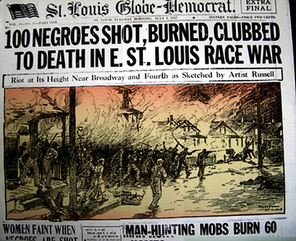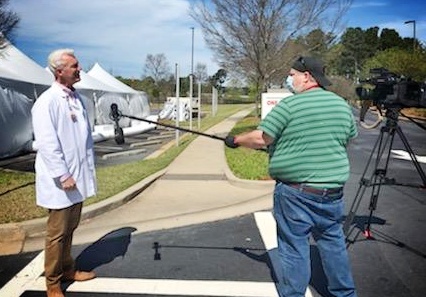Chicago mayor gives Black, brown journalists preference in one-on-one interviews marking her first two years in office
Halfway through her first term, Chicago’s Black mayor told reporters that she would give preference to Black and brown journalists doing two-year anniversary pieces, declining interviews with some white political reporters in the city.
The blowback to the policy was immediate for the first-time mayor, although criticism came predominantly from white reporters and the white legacy media. Lightfoot is a lawyer and former head of Chicago’s Police Board who never ran for public office before she threw her hat into a crowded ring for mayor, winning a runoff election in April 2019. She is the first Black woman to lead the city.
The interview policy was first disclosed by longtime Chicago political reporter Mary Ann Ahern of NBC on Twitter, which has since been retweeted over 4,000 times. Several other white reporters at the city’s top media outlets, including Paris Schultz and Heather Cherone of WTTW, acknowledged that they, too, had been turned down for interviews.
“The Chicago media leadership must evolve with the times, in order to be a true reflection of the vibrant, vast diversity of our city,” Lightfoot said in an official letter. “Diversity matters and without it, how can you as the media truly speak to the needs and interests of the diverse and nuanced constituency you claim to serve until you do the work until you do the work necessary to reflect that constituency.”
Chicago Tribune reporter Gregory Pratt, who has tussled in the past with the mayor over access issues, said he canceled an interview after hearing of the policy.
“I am a Latino reporter @chicagotribune whose interview request was granted for today,” Pratt said in a tweet. “However, when I asked the mayor’s office to lift its condition on others and when they said no, we respectfully canceled. Politicians don’t get to choose who covers them.”
Ja’Mal Green, a former mayoral candidate and civil rights activist, criticized the mayor’s decision. “This isn’t how you do it,” he tweeted. “You meet with the stations (sic) exec, you talk about it, you create a campaign to push for more diversity in media but you don’t wait until you have a terrible two years and then say only POC can cover me.”
Sarah Conway, senior reporter at the nonprofit City Bureau, said Lightfoot declined interview requests last year from a team of mostly young women of color and then complained about multiple FOIA requests. Monica Eng, an Asian-Latina reporter at WBEZ public radio, said she also has been denied interview requests.
Throughout her tenure in office, Lightfoot, who is gay, has attempted to make diversity and inclusion a major focus of her priorities, although she’s had to do so while contending with an 11-day teacher’s strike months after she took office and then a pandemic that largely affected Chicago’s Black and brown communities. Last summer, downtown Chicago saw looting and unrest that followed George Floyd’s killing in Minneapolis, as well as large-scale (and peaceful) protests across the city calling for police reform. Earlier this year, a Chicago police officer shot and killed a 13-year-old after a foot chase.
In a statement, Lightfoot said she’s been taken aback by the “overwhelming whiteness and maleness” of Chicago media outlets, from the boardroom to the newsroom.
Brandon Pope, president of the Chicago chapter of the National Association of Black Journalists or NABJ, said the mayor’s move highlighted the larger issues with diversity.
“I think prioritizing media requests for people of color is a welcomed move that NABJ-Chicago fully embraces, but we want this to be the standard, and not the exception,” Pope said.
In a statement, NABJ did not support the mayor’s tactic but applauded Lightfoot’s “sensitivity to the lack of diversity among the people who cover city government.”
Curtis Lawrence, an associate professor of journalism at Columbia College Chicago, said he was happy the mayor is calling attention to this issue.
When he graduated from Northwestern’s Medill School of Journalism in 1982, the expectation was that by the year 2000, there would be more equity in newsrooms, Lawrence said. Nearly four decades later, that still hasn’t happened.
“It seems that [equity] has gotten worse, and part of the reason is newsrooms in general are shrinking,” said Lawrence. “To me, that is cause for more of an effort to look at representation of Black people and people of color in our newsrooms, especially in a city like Chicago.”
Harold Washington, the first Black mayor of Chicago, also hand-picked journalists of color for stories. He was elected in 1983, and while the City Hall press corps has become more diverse in the decades since, it is still mostly white, even as the city’s population has become majority Black and brown.
Morgan Elise Johnson, co-founder and editor of The Triibe, a Black-owned independent digital media outlet said assertions that the mayor’s statement is “reverse racism” are ridiculous.
“The fact that anyone has to hold space for Black and brown journalists really points to the fact that there is a disparity in the first place,” Johnson said.
Calling Wednesday’s statement from the mayor ‘bizarre’ Johnson says Black-owned media has long been locked out of access to city hall and the resources to have a reporter at city hall every day. She says this move by the mayor’s office shouldn’t be controversial at all, due to the lack thereof of resources and access.
“Of all the conversations we could be having about policies, the way the media has been framing this action from the mayor as ‘policy’ is inappropriate,” Johnson said. “There are plenty of policies that we could be looking at instead of making ourselves the story.”
Pulitzer Prize winning local reporter Mark Konkol wrote in a column that he supported Lightfoot’s decision, noting that the pushback came primarily from white reporters. “The mayor isn’t wrong,” he wrote. “Don’t just take it from this white reporter who lives on the far South Side.”
The National Association of Hispanic Journalists said while it’s important to spotlight newsroom inequities, the organization “does not condone restricting press access based on a journalist’s race/ethnicity. Any action that threatens the cornerstone of our democracy and First Amendment rights is unacceptable.”
“Equity is not racism,” Pope said. “Expanding access to Black and brown outlets is not racism. [NABJ] wants media outlets to embrace diversity, but we want institutions of power to embrace it as well.”
Full Statement from National Association of Hispanic Journalists:
While it’s important to address long-standing newsroom inequalities, and it is imperative that leaders in power help hold news organizations accountable, NAHJ does not condone restricting press access based on a journalist’s race/ethnicity. Any action that threatens the cornerstone of our democracy and First Amendment rights is unacceptable. We must take more effective steps to achieve lasting equity in newsrooms and news coverage.
Full Statement from National Association of Black Journalists:
The recent comments issued by Chicago Mayor Lori Lightfoot to explain her decision to only do one-on-one interviews with Black and Brown reporters on the two-year anniversary of her inauguration is a bold move. It appears to serve to underscore her desire to draw attention to the racial disparities in local newsrooms and political coverage. The mayor notes that she is disturbed about the overwhelming white Chicago press corps covering city hall. While her social media posts and subsequent letter have been eyebrow-raising to some, it shines a needed spotlight on the call for a greater commitment to diversity, equity and inclusion across the media industry.
Although we cannot support the tactic, we applaud the mayor’s sensitivity to the lack of diversity among the people who cover city government. Historically, America’s elite political units have been led by predominantly white reporters and managers. Too often Black journalists are not given the opportunity to join political teams.
While the mayor has every right to decide how her press efforts will be handled on her anniversary, we must state again, for the record, that NABJ’s history of advocacy does not support excluding any bona fide journalists from one-on-one interviews with newsmakers, even if it is for one day and in support of activism. We have members from all races and backgrounds and diversity, equity and inclusion must be universal. However, the mayor is right in pointing to the fact that Black and Brown journalists have been quietly excluded from a number of access points over the years. We know first-hand it is painful and unhealthy for our communities.
NABJ is also gravely concerned to see that a city with such a diverse population has no fair representation of communities of color in its local press corps.
This local issue is reflective of what is happening around the country and we continue to work to change the status quo. We have been successful in a number of areas to dramatically improve access and promotions for Black journalists, especially during the awakening and racial reckoning stemming from George Floyd’s death.
The mayor’s deputy communications director stated on Twitter, “Chicago’s Mayor picked one day out of 365 to exclusively provide one-on-one interviews with journalists of color ahead of her two-year anniversary. That shouldn’t be controversial. The lack of diversity in the media is.”
We call on all media outlets to further improve Black and Brown representation within their newsrooms now. There should be no further delay in making swift and effective changes.
Charles Jefferson is a Chicago-based journalist, communications and media professional, whose work has appeared on WTTW-TV, WGN-TV, and Chicago Talks. He is an active member of the Chicago chapter of the National Association of Black Journalists.


